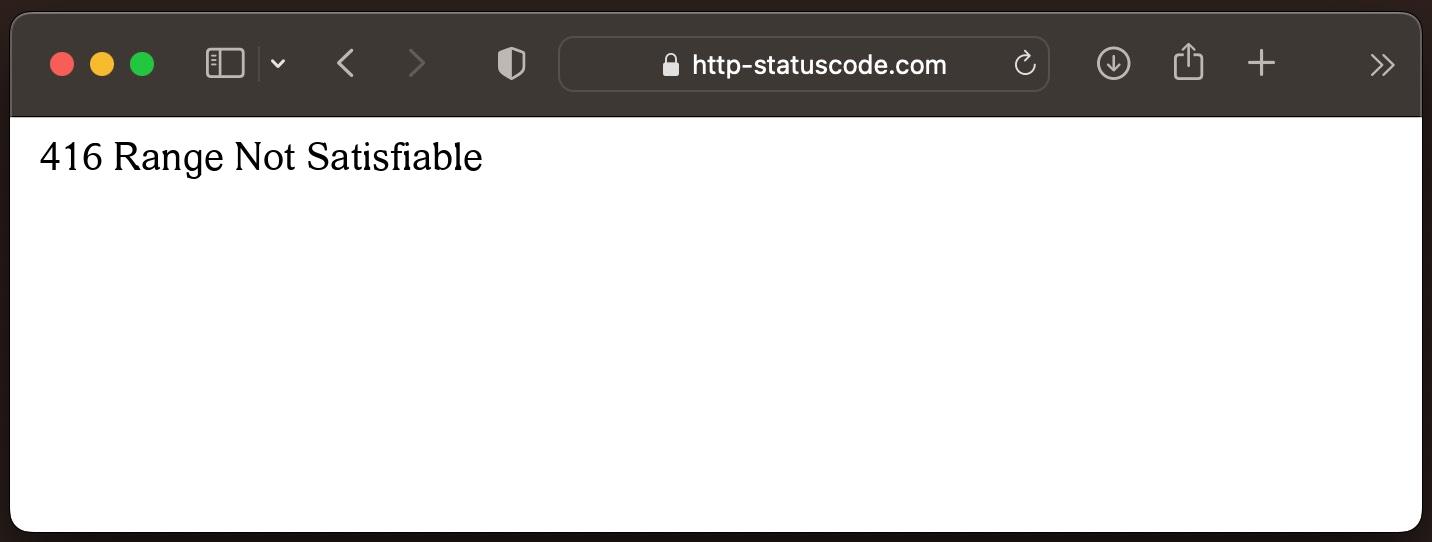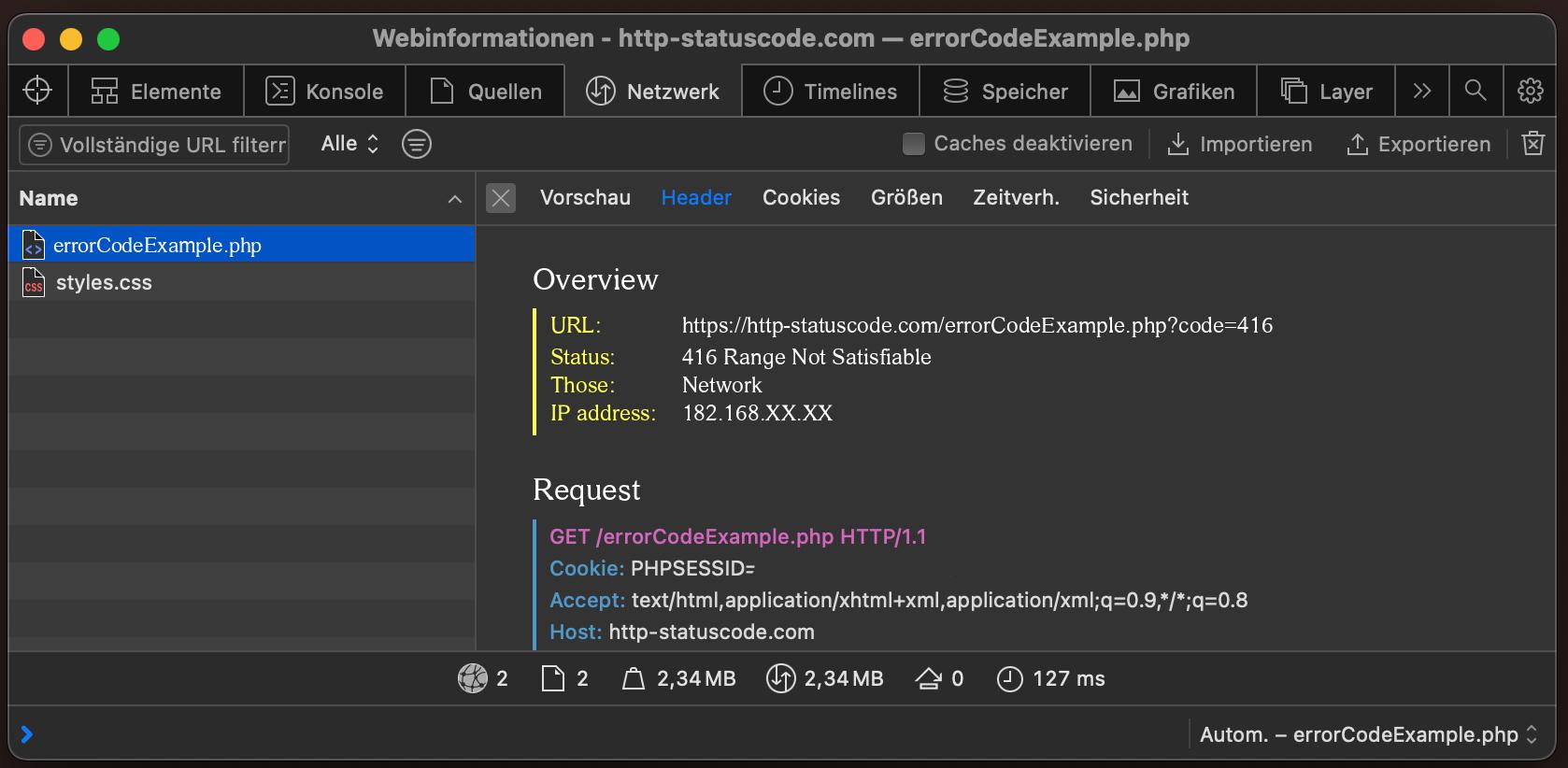416
Range Not Satisfiable
Specification of the HTTP status code 416
The 416 Range Not Satisfiable status code indicates that none of the ranges in the request's Range header field (Section 3.1) overlap the current extent of the selected resource or that the set of ranges requested has been rejected due to invalid ranges or an excessive request of small or overlapping ranges.
For byte ranges, failing to overlap the current extent means that the first-byte-pos of all of the byte-range-spec values were greater than the current length of the selected representation. When this status code is generated in response to a byte-range request, the sender SHOULD generate a Content-Range header field specifying the current length of the selected representation (Section 4.2).
For example:
HTTP/1.1 416 Range Not Satisfiable
Date: Fri, 20 Jan 2012 15:41:54 GMT
Content-Range: bytes */47022
Note: Because servers are free to ignore Range, many implementations will simply respond with the entire selected representation in a 200 (OK) response. That is partly because most clients are prepared to receive a 200 (OK) to complete the task (albeit less efficiently) and partly because clients might not stop making an invalid partial request until they have received a complete representation. Thus, clients cannot depend on receiving a 416 Range Not Satisfiable response even when it is most appropriate.
Source / Quote by: The 416 Range Not Satisfiable HTTP Status Code is specified by section 4.4 of RFC7233.
HTTP-Protocol
How to throw a 416 statuscode with PHP?
To throw the HTTP status code 416 on a web page, the PHP function http_response_code can be used. The syntax is as follows: http_response_code(416) (PHP 5 >= 5.4.0, PHP 7, PHP 8)
Test the 416 HTTP status code
In order to be able to display the HTTP status code (in this case 416 Range Not Satisfiable) and other information on the client side, the development console must be opened with F12. Afterwards you have to navigate to the tab "Network". Now you can open the page, in the network tab you should see the web page (example index.php). This must be selected and then the Herder section must be selected. Here the user will see the following result:

URL: https://http-statuscode.com/errorCodeExample.php?code=416
Status: 416 Range Not Satisfiable
Those: Network
IP address: XX.XX.XX.XX

How to create a custom error page for the 416 status code
Apache Webserver
The web server "Apache" is one of the most popular web servers on the Internet. To create an own 416 Range Not Satisfiable error page in "Apache", the following change must be made in the following file.
NGINX Webserver
Similar to the web server "Apache", "NGINX" is also widely used on the Internet. To create your own 416 Range Not Satisfiable error page in "NGINX", the following change must be made in the following file.
location = /416.html {
root /usr/share/nginx/html;
internal;
}
Browser compatibility of the 416 status code
| Chrome | no data |
| Edge | no data |
| Firefox | no data |
| Opera | no data |
| Safari | no data |
| Chrome Android | no data |
| Firefox for Android | no data |
| Opera Android | no data |
| Safari on iOS | no data |
| Internet | no data |
| WebView Android | no data |
Constants in programming languages
HttpStatusCode.RequestedRangeNotSatisfiable
http.StatusRequestedRangeNotSatisfiable
Response::HTTP_REQUESTED_RANGE_NOT_SATISFIABLE
httplib.REQUESTED_RANGE_NOT_SATISFIABLE
http.client.REQUESTED_RANGE_NOT_SATISFIABLE
http.HTTPStatus.REQUESTED_RANGE_NOT_SATISFIABLE
:requested_range_not_satisfiable
